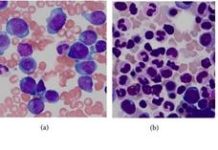Experts are now warning that women who have recently gotten the COVID-19 vaccine should not get mammograms right away. It’s not exactly dangerous, but it can lead to a frightening false result.
All across the nation, women who have recently been vaccinated and then gotten a mammogram are getting worrisome results from their mammograms. Their lymph nodes are showing up swollen as if they had cancer, causing unnecessary worry and biopsies.
“We all started talking about it, and it was like a wildfire,” says Dr. Connie Lehman, chief of breast imaging in Massachusetts General’s department of radiology and professor of radiology at Harvard Medical School. “I cannot tell you how many women are showing nodes on mammograms and people thought it was going to be not that common.”

The COVID-19 vaccine, like most vaccines, can come with some side effects, including swelling and other flu-like symptoms. That swelling is often present in the lymph nodes and shows up in the same way cancer might on a mammogram.
After several cases of swollen lymph nodes showed up across the nation, the patient care committee of the Society of Breast Imaging (SBI) put out an advisory in January. The advisory suggested that healthcare workers ask mammogram patients about their COVID-19 vaccine status and record the date of vaccination and which arm it was given in. This information should then be taken into account when determining whether a patient should have a follow-up biopsy.

Article continues below
Our Featured Programs
See how we’re making a difference for People, Pets, and the Planet and how you can get involved!
“We wanted to advocate that women don’t always need to have a biopsy,” says Dr. Lars Grimm, associate professor of radiology at Duke University School of Medicine and one of the authors of the SBI advisory. “Because oftentimes the default, if you see swollen lymph nodes in a patient, would actually be to recommend doing a biopsy.”
“When you hear hoofbeats, don’t think zebra,” explains Lehman. “If a woman had a vaccine in the arm on the same side, and the lymph nodes are swollen, this is a normal biological response. It’s totally expected. It just doesn’t make sense to start imaging.”

Of course, that doesn’t mean that no woman who has recently had a COVID-19 vaccine should get a biopsy following her mammogram, nor does it mean that a woman cannot choose to have a biopsy anyway if she wishes. Some women just naturally need to know right away and don’t want to wait for another mammogram before going through a biopsy.
But for the most part, biopsies are unnecessary for women who have recently been vaccinated, and a follow-up mammogram later on is all that will be needed. Rather than worrying about these women, the experts say, mammography clinics should be more concerned with women whose mammograms have been delayed or missed due to COVID-19.

“We need to take care of the large percentage of women who didn’t get screened because of the shutdowns during COVID,” says Lehman. “At Mass General alone, we failed to screen 15,000 women because of COVID, and we’re still trying to get them back in.”
Hopefully, this situation can save others from getting unnecessary medical procedures in the future. The COVID-19 vaccine can also cause lymph node swelling in other parts of the body, so it’s important for patients and health care professionals to know that this swelling may not be indicative of other medical problems.

The SBI recommends scheduling your routine annual breast screening before getting your COVID-19 vaccine. If you’ve already been vaccinated, wait four to six weeks after your second dose before scheduling a screening appointment.
But whatever you do, experts say, don’t skip it altogether. According to the journal Radiology, women who skip just one scheduled mammogram before their breast cancer diagnosis are significantly more likely to die of the disease. And for women who have had breast cancer before, the likelihood of a fatal diagnosis within 10 years of the first diagnosis is 50 percent lower if they get regular screenings.
![]()
Provide Mammograms
Support those fighting Breast Cancer at The Breast Cancer Site for free! →
Whizzco Source






